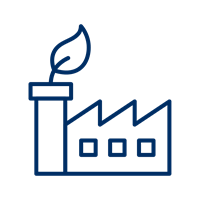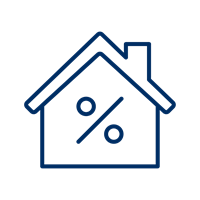Small Businesses Air Quality Improvement Tax Credit
 The government is proposing to introduce a temporary Small Business Air Quality Improvement Tax Credit (“SBAQITC”). This would be a refundable tax credit that would be available to eligible entities in connection with qualifying expenditures that improve air quality in qualifying locations. To qualify, the expenditures must be made between September 1, 2021 and December 31, 2022. This measure is intended to encourage small businesses to invest in better ventilation and air filtration for overall better indoor air quality.
The government is proposing to introduce a temporary Small Business Air Quality Improvement Tax Credit (“SBAQITC”). This would be a refundable tax credit that would be available to eligible entities in connection with qualifying expenditures that improve air quality in qualifying locations. To qualify, the expenditures must be made between September 1, 2021 and December 31, 2022. This measure is intended to encourage small businesses to invest in better ventilation and air filtration for overall better indoor air quality.
The tax credit would be computed as 25 per cent of an eligible entity’s qualifying expenditures up to a maximum of $10,000 per qualifying location, and up to a maximum of $50,000 across all qualifying locations. These limits would need to be shared among affiliated businesses. An entity would be required to include the tax credit in its taxable income for the year the credit is claimed.
Both corporate and individual (but not trusts) members of a partnership that incurs qualifying expenditures will also be eligible to claim this tax credit.
Qualifying Expenditures
Qualifying expenditures would include outlays attributable to the purchase, installation, upgrade, or conversion of mechanical heating, ventilation and air conditioning (“HVAC”) systems, as well as the purchase of devices designed to filter air using high efficiency particulate (“HEPA”) filters.
HVAC expenses would only be considered qualifying expenditures if the system is:
- Designed to filter air at a rate in excess of a minimum efficiency reporting value (“MERV”) of 8; or
- Designed to filter air at a rate equal to MERV 8 and to achieve an outdoor air supply rate in excess of what is required for the space by relevant building codes. For a system that is upgraded or converted, prior to the improvement the system must have been designed to filter air at a rate equal to MERV 8.
Qualifying expenditures for an eligible entity would exclude an expense:
- Made or incurred under the terms of an agreement entered into before September 1, 2021;
- Related to recurring or routine repair and maintenance;
- For financing costs in respect of a qualifying expenditure;
- That is paid to a party with which the eligible entity does not deal at arm’s length;
- That is salary or wages paid to an employee of the eligible entity; or
- That can reasonably be expected to be paid or returned to the eligible entity, or to a person or partnership either not dealing at arm’s length with the eligible entity or at the direction of the eligible entity.
To the extent government assistance is available to assist in the funding of a qualifying expenditure, the assistance will reduce the amount eligible for the SBAQITC.
Qualifying Locations
Qualifying locations would include properties used by an eligible entity primarily in the course of its ordinary commercial activities in Canada (including rental activities), excluding self-contained domestic establishments (i.e., a place of residence in which a person generally sleeps or eats).
Timing
The SBAQITC would be available in respect of qualifying expenditures incurred between September 1, 2021 and December 31, 2022.
The taxation year for which an eligible entity would claim the tax credit would depend on when the qualifying expenditure was incurred.
- Qualifying expenditures incurred before January 1, 2022 would be claimed by an eligible entity for its first taxation year that ends on or after January 1, 2022.
- Qualifying expenditures incurred on or after January 1, 2022 would be claimed by an eligible entity for the taxation year in which the expenditure was incurred.

 Under the current tax rules, teachers are eligible to claim a refundable tax credit of 15 per cent on an amount of up to $1,000 in expenditures made in a taxation year for eligible supplies. To qualify, eligible supplies must be purchased for use in a school or other regulated child care facility for the purpose of teaching or facilitating learning. Eligible supplies include books, construction paper, flash cards, games and puzzles, containers, and educational support software. Under the current rules, electronic devices are not included in the list of eligible supplies.
Under the current tax rules, teachers are eligible to claim a refundable tax credit of 15 per cent on an amount of up to $1,000 in expenditures made in a taxation year for eligible supplies. To qualify, eligible supplies must be purchased for use in a school or other regulated child care facility for the purpose of teaching or facilitating learning. Eligible supplies include books, construction paper, flash cards, games and puzzles, containers, and educational support software. Under the current rules, electronic devices are not included in the list of eligible supplies. 
 Consistent with the
Consistent with the  In the
In the 



